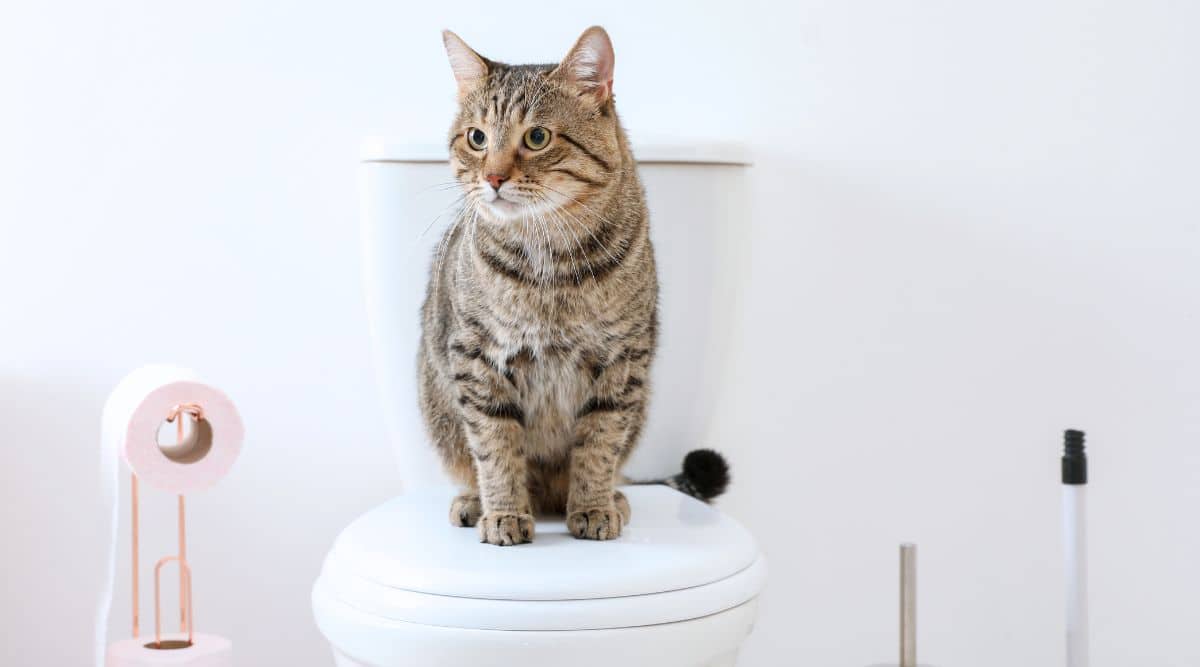The Risks of Flushing Cat Poop in Your Toilet - Preventive Measures
The Risks of Flushing Cat Poop in Your Toilet - Preventive Measures
Blog Article
Do you find yourself trying to locate resources on Don’t flush cat feces down the toilet?

Intro
As cat owners, it's necessary to be mindful of just how we get rid of our feline close friends' waste. While it might seem practical to purge pet cat poop down the commode, this practice can have harmful effects for both the setting and human health.
Alternatives to Flushing
Fortunately, there are safer and more responsible methods to throw away feline poop. Take into consideration the adhering to choices:
1. Scoop and Dispose in Trash
The most typical method of disposing of pet cat poop is to scoop it into an eco-friendly bag and toss it in the garbage. Make certain to make use of a dedicated litter scoop and get rid of the waste immediately.
2. Use Biodegradable Litter
Choose biodegradable cat litter made from materials such as corn or wheat. These clutters are eco-friendly and can be securely disposed of in the garbage.
3. Bury in the Yard
If you have a backyard, take into consideration hiding pet cat waste in an assigned area far from vegetable gardens and water sources. Make certain to dig deep enough to stop contamination of groundwater.
4. Mount a Pet Waste Disposal System
Invest in a family pet waste disposal system especially created for feline waste. These systems use enzymes to break down the waste, lowering smell and ecological effect.
Health Risks
Along with ecological issues, flushing feline waste can likewise position health threats to people. Cat feces may contain Toxoplasma gondii, a bloodsucker that can create toxoplasmosis-- a potentially extreme ailment, particularly for pregnant females and individuals with damaged body immune systems.
Ecological Impact
Purging feline poop introduces unsafe virus and bloodsuckers right into the water system, positioning a substantial risk to water ecosystems. These pollutants can adversely affect aquatic life and concession water top quality.
Conclusion
Responsible pet dog ownership extends past supplying food and shelter-- it additionally involves proper waste administration. By refraining from purging pet cat poop down the toilet and selecting different disposal approaches, we can reduce our environmental footprint and secure human health and wellness.
Why You Should Never Flush Cat Poop Down the Toilet
A rose by any other name might smell as sweet, but not all poop is created equal. Toilets, and our sewage systems, are designed for human excrement, not animal waste. It might seem like it couldn’t hurt to toss cat feces into the loo, but it’s not a good idea to flush cat poop in the toilet.
First and foremost, assuming your cat uses a litter box, any waste is going to have litter on it. And even the smallest amount of litter can wreak havoc on plumbing.
Over time, small amounts build up, filling up your septic system. Most litter sold today is clumping; it is made from a type of clay that hardens when it gets wet. Ever tried to scrape old clumps from the bottom of a litter box? You know just how cement-hard it can get!
Now imagine just a small clump of that stuck in your pipes. A simple de-clogger like Drano isn’t going to cut it. And that means it’s going to cost you big time to fix it.
Parasitic Contamination
Believe it or not, your healthy kitty may be harboring a nasty parasite. Only cats excrete Toxoplasma in their feces. Yet it rarely causes serious health issues in the cats that are infected. Most people will be fine too if infected. Only pregnant women and people with compromised immune systems are at risk. (If you’ve ever heard how women who are expecting are excused from litter cleaning duty, Toxoplasma is why.)
But other animals may have a problem if infected with the parasite. And human water treatment systems aren’t designed to handle it. As a result, the systems don’t remove the parasite before discharging wastewater into local waterways. Fish, shellfish, and other marine life — otters in particular — are susceptible to toxoplasma. If exposed, most will end up with brain damage and many will die.
Depending on the species of fish, they may end up on someone’s fish hook and, ultimately on someone’s dinner plate. If that someone has a chronic illness, they’re at risk.
Skip the Toilet Training
We know there are folks out there who like to toilet train their cats. And we give them props, it takes a lot of work. But thanks to the toxoplasma, it’s not a good idea.

I was shown that article about How to Dispose of Cat Poop and Litter Without Plastic Bags from an acquaintance on a different domain. Remember to take the time to share this page if you enjoyed reading it. Bless you for your time. Visit us again soon.
Click Here Report this page